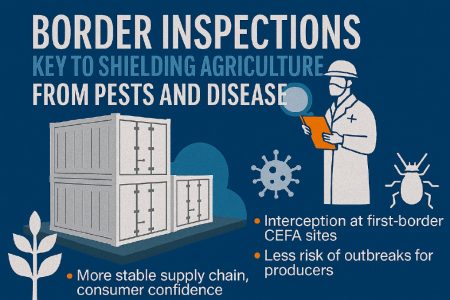The Philippine Department of Agriculture (DA) has been urged to prioritize building first-border inspection facilities to protect the country’s agricultural sector.
Speaking at a Senate hearing on the DA’s proposed 2026 budget, Senator Francis Pangilinan called the facilities a strategic investment in biosecurity and food safety.
He emphasized that Cold Examination Facilities in Agriculture (CEFA) sites are long overdue. These sites would help detect and contain pests and diseases before they spread.
Urgent need for border checks
Mr Pangilinan cited the African swine fever (ASF) outbreak as one of the examples of what happens without early inspections.
“ASF was precisely because we didn’t have that first border inspection,” he said. “That cost us at least USD 1.2 billion in one year, maybe more.”
The ASF outbreak forced the government to adjust import duties on pork during the Covid pandemic.
The proposed CEFA facilities would include:
- ✅ Modern laboratories
- ✅ Quarantine areas
- ✅ Inspection systems for imported meat, produce, and plant materials
These would allow authorities to intercept threats before products are distributed nationwide. Mr Pangilinan said this could prevent future disease outbreaks and protect local producers.
Budget strategy and inter-agency coordination
He urged the DA to begin construction of at least three CEFA sites, noting that the full cost for five sites could reach USD 32.64 million.
“Let’s at least get started,” Mr Pangilinan said. “It’s really putting the necessary funding to prevent losses in the billions.”
He stressed that CEFA funding should be treated as a frontline defense, not a reactive expense. Including it in the 2026 budget would signal a shift in strategy.
The senator also called for better coordination between agencies. The Bureau of Animal Industry and the Bureau of Plant Industry must be equipped to operate within a unified system, he added.
Boosting public confidence and food safety
Beyond protecting producers, CEFA sites could reassure consumers about the safety of imported food. Transparent inspection protocols support stable markets and public trust.
“This is about protecting our food supply and our farmers,” Mr Pangilinan remarked. “We cannot afford to wait for the next crisis.”

